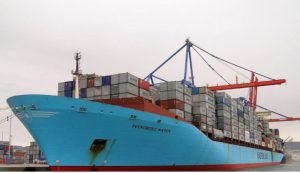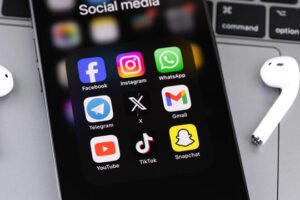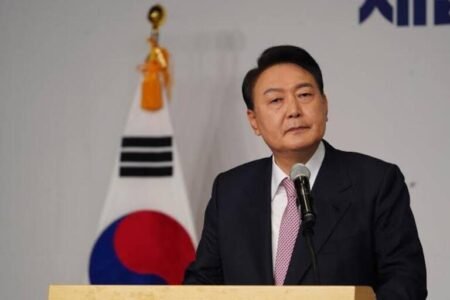Nnamdi Kanu, the detained leader of the Indigenous People of Biafra (IPOB), has revealed why no Nigerian court can try him.
Kanu said that Section 2, Subsection 3F of the Terrorism Prevention and Prohibition Act, 2022, prevents any court of law in the country from trying him.
The Act reads, “In this Act, “act of terrorism” means an act wilfully performed with the intention of furthering an ideology, whether political, religious, racial, or ethnic, and which; may seriously harm or damage a country or an international organisation; unduly compels a government or an international organisation to perform or abstain from performing any act; seriously intimidates a population; seriously destabilises or destroys the fundamental political, constitutional, economic or social structures of a country or an international organisation; influences a government or an international organisation by intimidation or coercion; violates the provisions of any international treaty or resolution to which Nigeria is a party, subject to the provisions of section 12 of the Constitution of the Federal Republic of Nigeria, 1999.”
He made this statement on Monday, after the Federal High Court in Abuja denied his request for bail or a transfer from the Department of State Services’ (DSS) custody to a prison or house arrest.
The IPOB leader also stated that any court that attempted to try him would be engaging in acts of terrorism.
He said, “Terrorism Prohibition and Prevention Act said I cannot be tried in Nigeria. That is the law of Nigeria. I can never be tried in any court of law in Nigeria. That is what the law says.
“Anyone standing trial or coming to try me is a terrorist. That is what the law says, not me. Section 2, Subsection 3F of the Terrorism Prevention and Prohibition Act—that is what it says.
“Any court continuing to try me is committing an act of terrorism.”
This, he said, was the reason his case was being delayed.
“You cannot violate a treaty that Nigeria entered into. You entered my house and then came to try me; that is not done anywhere in the world, so you must be aware that that is where there are all these ridiculous delays. That is what the Supreme Court says. I did not jump bail; my home was invaded; they came to kill me, and I survived.
“They came to Kenya to kidnap me, brought me back to this country, and sought to try me, which the law says cannot happen.
“You cannot violate a treaty that was entered into and then hope to stand on that illegality to conduct a trial.
“It is not done anywhere in the world, and nobody has. There’s no exception, no exception whatsoever. That’s what the law says in Section 12.
“Nigeria becomes law, and it is a law you cannot change. It doesn’t matter what they all do. This thing they are doing against me is just pure rubbish. You never stand with me. I believe in justice and fairness; that’s all.”
Earlier, while delivering her ruling, Justice Nyako said she found as a fact that Kanu jumped bail when he was earlier granted.
Nyako told the court that the sureties who stood for him in the earlier bail had applied to be discharged and had been discharged on the ground that they could not locate Kanu and did not know his whereabouts.
The judge, however, stated that the only option left for Kanu was to go to the Court of Appeal and exercise his right of appeal.










